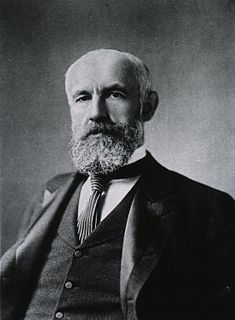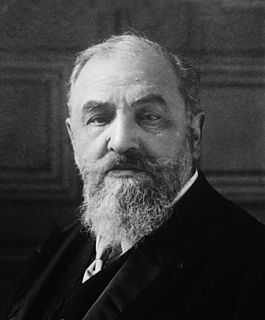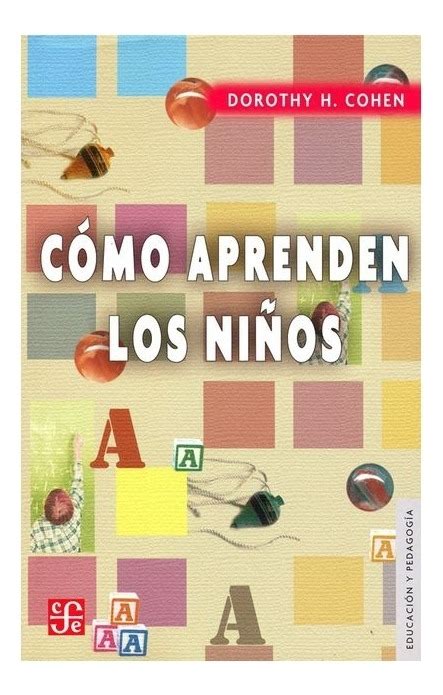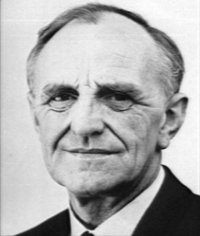A Quote by Maria Montessori
If a child finds no stimuli for the activities which would contribute to his development, he is attracted simply to 'things' and desires to posses them.
Quote Topics
Related Quotes
No one can posses an afternoon of rain beating against the window, or the serenity of a sleeping child, or the magical moment when the waves break on the rocks. No one can posses the beautiful things of this Earth, but we can know them and love them. It is through such moments that God reveals himself to mankind.
There are few places outside his own play where a child can contribute to the world in which he finds himself. His world: dominated by adults who tell him what to do and when to do it -benevolent tyrants who dispense gifts to their good subjects and punishment to their bad ones, who are amused at the cleverness of children and annoyed by their stupidities.
The most successful leader of all is the one who sees another picture not yet actualized. He sees the things which are not yet there... Above all, he should make his co-workers see that it is not his purpose which is to be achieved, but a common purpose, born of the desires and the activities of the group.
Fairy tales are loved by the child not because the imagery he finds in them conforms to what goes on within him, but because--despite all the angry, anxious thoughts in his mind to which the fairy tale gives body and specific content--these stories always result in a happy outcome, which the child cannot imagine on his own.
To assert that it is possible to establish peace between men of different nations is simply to assert that man, whatever his ethnical background, his race, religious beliefs, or philosophy, is capable of reason. Two forces within the individual contribute to the development of his conscience and of his morality: reason and sensitivity.
In certain circumstances where he experiments in new types of conduct by cooperating with his equals, the child is already an adult. There is an adult in every child and a child in every adult. ... There exist in the child certain attitudes and beliefs which intellectual development will more and more tend to eliminate: there are others which will acquire more and more importance. The later are not derived from the former but are partly antagonistic to them.
The child to be concerned about is the one who is actively unhappy, [in school].... In the long run, a child's emotional development has a far greater impact on his life than his school performance or the curriculum's richness, so it is wise to do everything possible to change a situation in which a child is suffering excessively.
Psychohistory, like psychoanalysis, is a science in which the researcher's feelings are as much or even more a part of his research equipment than his eyes or his hands. Weighing of complex motives can only be accomplished by identification with human actors, the usual suppression of all feeling preached and followed by most "science" simply cripples a psychohistorian as badly as it would cripple a biologist to be forbidden the use of a microscope. The emotional development of a psychohistorian is therefore as much a topic for discussion as his or her intellectual development.
A Godly leader ... finds strength by realizing his weakness
finds authority by being under authority
finds direction by laying down his plans
finds vision by seeing the needs of others
finds credibility by being an example
finds loyalty by expressing compassion
finds honor by being faithful
finds greatness by being a servant
A child is an eager observer and is particularly attracted by the actions of the adults and wants to imitate them. In this regard an adult can have a kind of mission. He can be an inspiration for the child's actions, a kind of open book wherein a child can learn how to direct his own movements. But an adult, if he is to afford proper guidance, must always be calm and act slowly so that the child who is watching him can clearly see his actions in all their particulars.
Figure out what you are meant to contribute to the world and make sure you contribute it. If this requires public speaking or networking or other activities that make you uncomfortable, do them anyway. But accept that they're difficult, get the training you need to make them easier, and reward yourself when you're done.
The mother gazes at the baby in her arms, and the baby gazes at his mother's face and finds himself therein... provided that the mother is really looking at the unique, small, helpless being and not projecting her own expectations, fears, and plans for the child. In that case, the child would find not himself in his mother's face, but rather the mother's own projections. This child would remain without a mirror, and for the rest of his life would be seeking this mirror in vain.


































